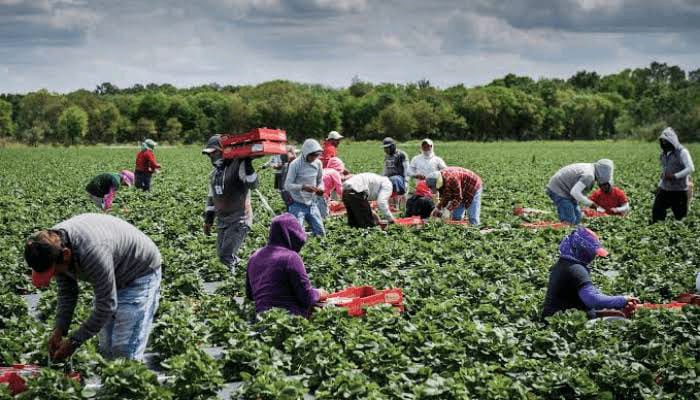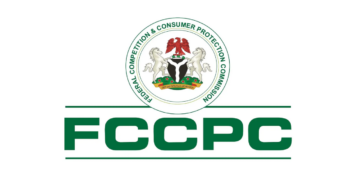A barrier to efficient agriculture in Africa today is structured financing. For many African nations, agriculture forms the bulk of the contribution to GDP, yet remains the most underfinanced sector.
For instance, in Nigeria, agriculture contributes about 15-20% to the GDP, yet forms less than 5% of bank lending, and across other African countries, a similar pattern emerges, where GDP contribution is at odds with lending.
For a continent where nearly 70% of its population depend on small or micro-scale farming as their primary source of livelihood, all efforts to boost food capacity and by proxy, food security must center around improving the capacity of these key players to match demand.
In the same vein, agricultural financing has always been cast as risky with several inherent risks that require well thought out contingencies to get right. From systemic risks such as weather conditions, farming practices and fluctuating price of inputs, to political risks across policy upheavals, price caps etc., working out the right structures and risk contingencies has always been categorized as treading murky waters, with little respite.
In a report by the Nigerian Bureau of Statistics (NBS), as of 2020, the agriculture sector’s non-performing loans hit NGN49.96bn, rising by 3% from NGN48.33bn in 2018 to NGN49.96bn as of the end of September 2019.
The problems faced by the Anchor Borrowers Program, initially created as a response to the agriculture financing deficit, raises important questions on the configurations of agriculture lending.
The program, launched by the Central Bank of Nigeria (CBN) in 2015, was hailed as a transformative initiative to revitalize the agricultural sector. With over 563 anchors spanning over seven years, it was expected to create a robust ecosystem that would empower smallholder farmers and drive sustainable growth in Nigeria.
It brought together private associations like RIFAN, Thrive Agric, AFEX; state governments amongst others, to connect smallholder farmers with input financing. In recent times however, the efficacy of the program has been called into question owing to issues such as outstanding repayments, poor program, risk-sharing and loan structure.
More recently, the tussle between GT Bank, a participating financial institution, and AFEX, one of the core anchors of the program regarding an outstanding balance is a symptom of an illness, which primarily is loan repayment structures for ag lending.
At one end of this tussle is AFEX, a player in the agricultural ecosystem, providing essential capital, market access, and storage solutions for the value chain, while impacting the lives of nearly half a million smallholder farmers.
Within the scope of the agriculture ecosystem, stakeholders like AFEX are undoubtedly a necessity for catalyzing much needed growth, as they play a very critical role in bridging gaps across infrastructure, technology, storage and productivity, facilitating market linkages, connecting farmers with buyers, while promoting fair prices.
Prior to joining as an anchor, their input financing program, launched in 2015, had a track record of over 90% repayment rates. This experience, much like the other anchors within the program, demonstrated a capacity to serve as bridges, connecting farmers with the disbursements within the scheme.
At the other end of this debacle lies GT Bank. Unlike traditional sectors with readily available collateral, agricultural ventures face uncertainties like weather fluctuations, pest infestations, and volatile market prices.
These factors can significantly impact a farmer’s ability to repay loans, leading to potential defaults, which has played out in the case of the outstanding balance caused by 2022 macroeconomic headwinds that saw farmers sell their harvests below market value to take care of their families.
A third and perhaps the most silent party within this dispute is Nigeria’s precarious food security. Already, the number of food insecure Nigerians reached an all-time peak of 100 million in Q1 2024, increasing from 66.2 million in Q1 2023, and the WFP projects that an additional 26.5 million people across the country will face acute hunger in the June-August 2024 lean season.
In addition, global food demand is expected to increase by 70% and so out of the ashes of this controversy, rises an equally important conversation, which is how to efficiently and sustainably invest in agriculture.
Africa’s agriculture industry is expected to be a $1 trillion industry. To achieve this goal, a chunk of the financing would have to be supported by private lending, which is why there is an increased need to strengthen mitigants against agriculture risks.
The AFEX and GT Bank situation serves as a stark reminder of the need for continuous improvement within the ABP, especially across risk management.
Recognising AFEX’s contributions to input financing and farmer engagement, and GT Bank’s support for the sector, it is recommended that both parties explore a mutually beneficial path that allows GT Bank recoup or refinance the outstanding balance, while government stakeholders tweak the ABP the ABP framework for optimal results. This sets a foundation for a more efficient and inclusive agricultural financing system in Nigeria, which empowers farmers, strengthens the agricultural sector, and contributes to the nation’s overall economic growth.





